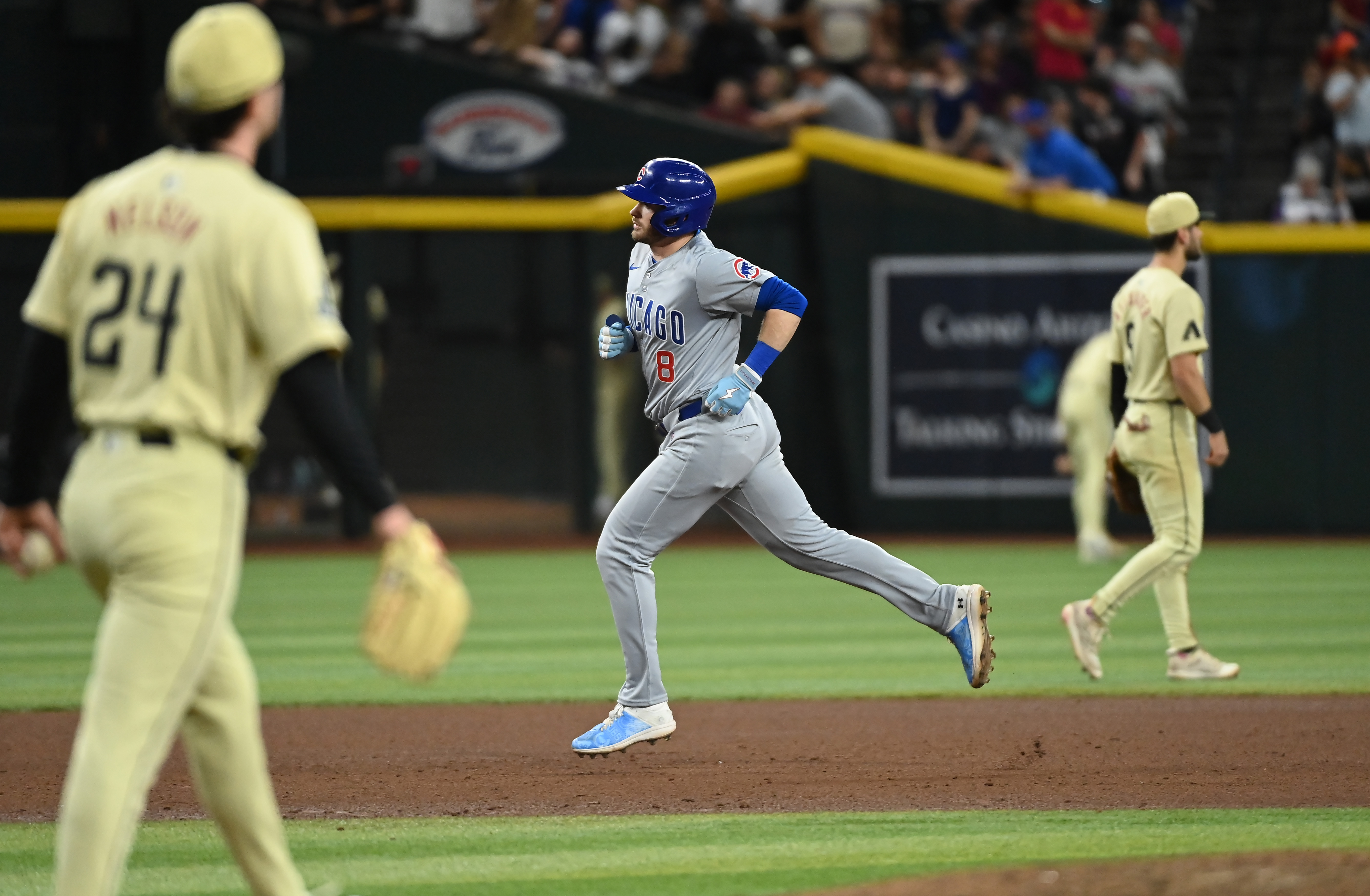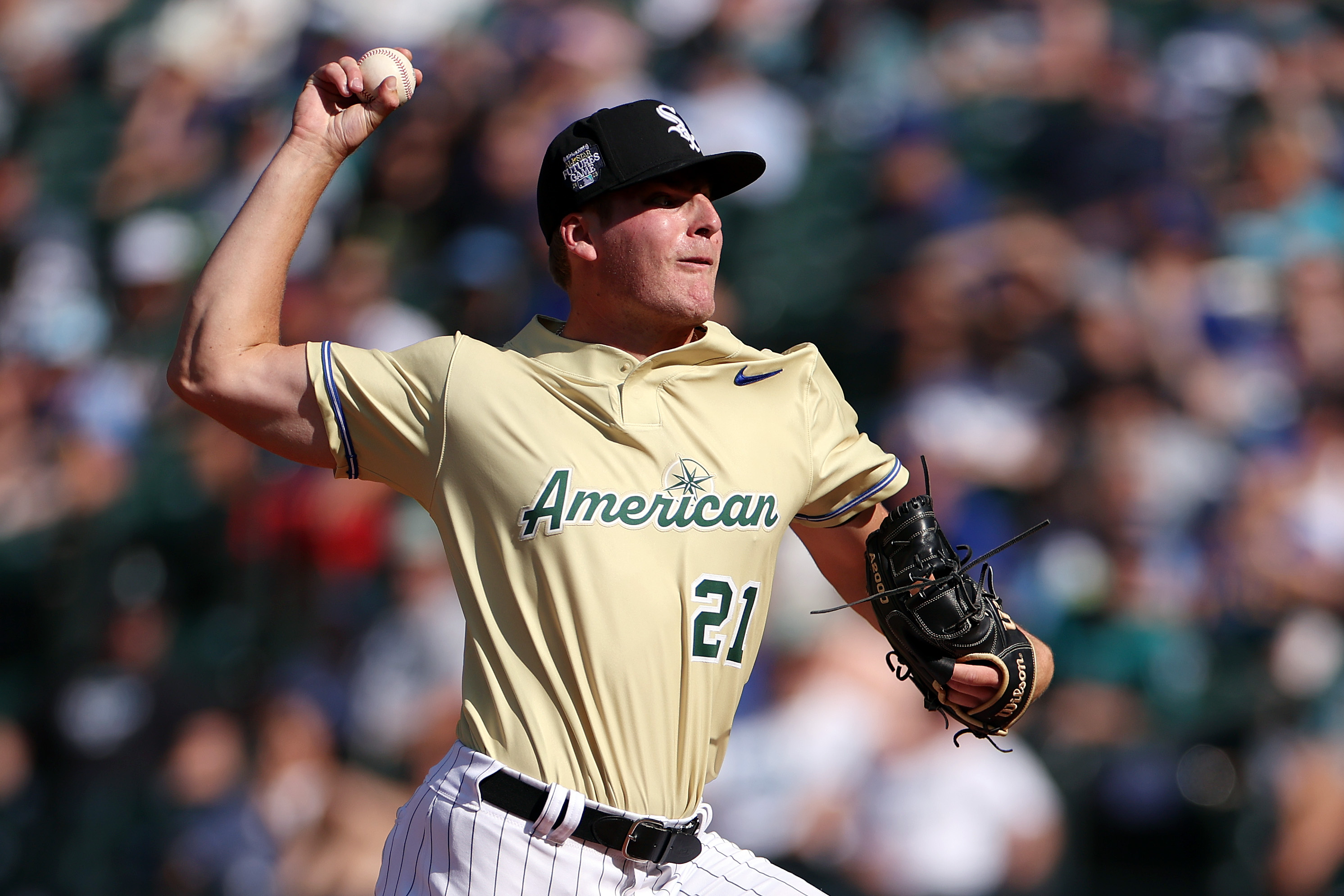
Until he arrived in Chicago, Minnie Minoso was merely just a name to Jose Abreu, a Cuban legend whose exploits his parents and grandparents told him about.
But it didn’t take long after he joined the White Sox in November 2013 for Abreu to realize how special the legendary Minoso was.
Whether it was the advice he dispensed, the daily trips to the clubhouse or the jokes he told, Minoso, who was 90 when he passed away March 1, had a significant impact on a group of young players who were never alive to see him streak around the basepaths. Fellow Cubans Abreu and Alexei Ramirez said they’re excited to have the chance to honor Minoso as the team did Friday by wearing their 1959-era jerseys with the outfielder’s No. 9 on the back of each.
“My parents and grandparents said he was one of the greatest,” Abreu said through an interpreter. “I was too young. But they always told me about his legacy, how he played here and what he did. When I came to the U.S. and had the opportunity to meet him it was a special moment because all the background that my father told me about him, I could realize it when I met him.”
[MORE: Robin Ventura diffuses Robertson-Scioscia beef]
Minoso played for the White Sox from 1951-57, again from 1960-61 and then again in 1964, 1976 and 1980. But his tenure with the club lived on long after that as Minoso -- whose number the team retired in 1983 -- held an ambassador role until his death. Both Abreu and Ramirez were hit particularly hard by Minoso’s death just days after they reported to spring training.
“It’s always going to be hard because Minnie was so special for us, for everybody here in the White Sox organization,” Ramirez said through an interpreter. “When you walk through the clubhouse you can sometimes be reminded of some of the jokes that he made.
MLB
“It’s an honor for me especially and a privilege. I will want to wear this jersey for the whole season. But it’s just for today and it’s good. It’s good because it’s an honor for us and an honor for Minnie, Minnie’s memory.”
Minoso’s reach wasn’t limited to Spanish-speaking players. Infielder Gordon Beckham said Minoso listened “to everybody’s problems and (perked) everybody up” with his positivity. Beckham recalled how Minoso would wear the same clothes -- underwear aside -- if the White Sox were on a winning streak.
“It seemed like all the time, he’d come in and just say how are you, how are you doing, and I’d go Minnie, ‘How are you doing?’ and he’d go, ‘I’m here,’ ” Beckham said. “And he would always say that, that was his thing, ‘I’m here,’ meaning like, he’s alive, he’s living and it was a good day. Special guy.”
[NBC SHOP: Gear up, White Sox fans!]
White Sox manager Robin Ventura thinks it was the relationship Minoso had with the team’s players and staff that has means more than any accomplishments he had on the field. Given the cultural ground Minoso broke in Chicago, Ventura knows how significant that is.
“A lot of these guys knew him,” Ventura said. “I know people understand his significance as far as when he came in the league and how important he was to the White Sox. But I think for these guys, it’s special to them because he was a part of the family.”
Abreu agrees.
He and Minoso quickly formed a bond after he signed his six-year, $68-million contract. As Abreu set foot on the field for the first time, Minoso dispensed some of the hours of advice he would eventually pass along. Those times mean just as much to Abreu as the legends he heard about Minoso from his family.
“He was a great person,” Abreu said. “We was outstanding with me and it’s an honor when you’re able to be around a person as good as him.”


